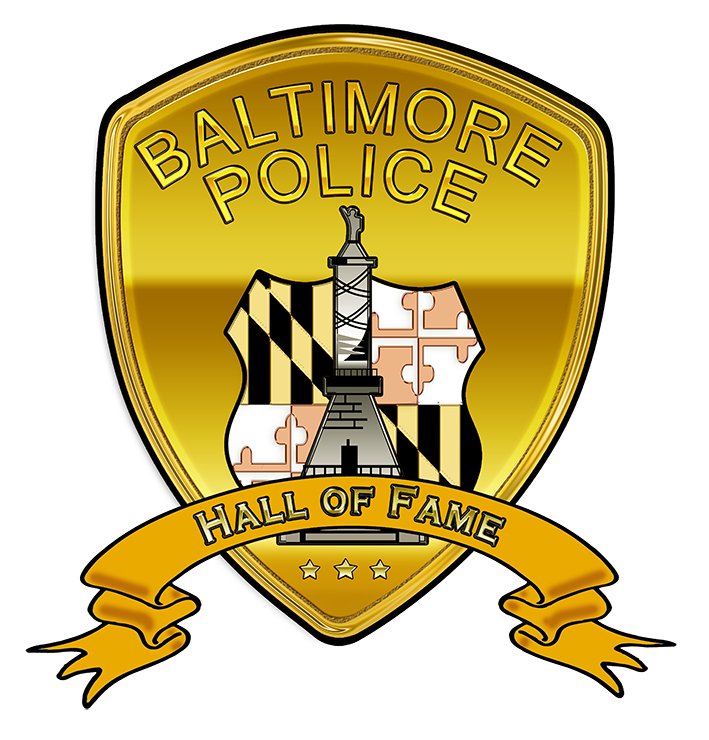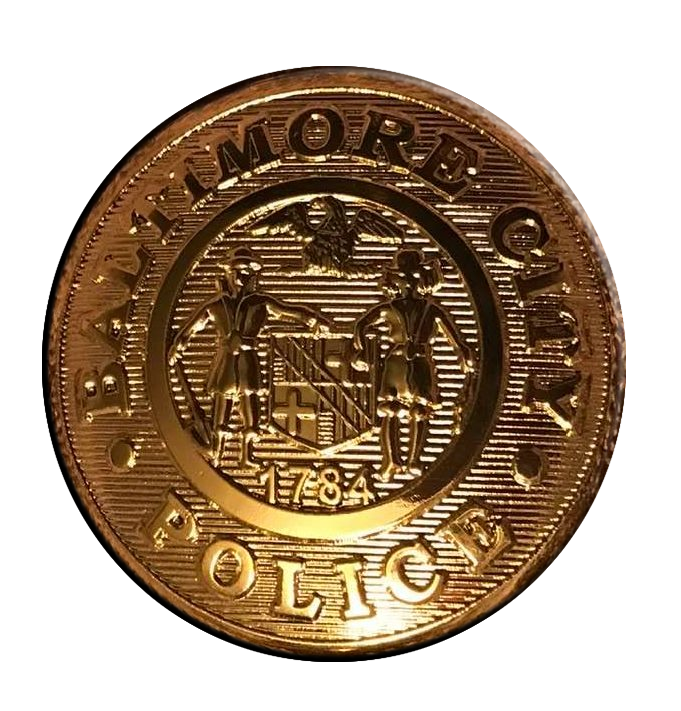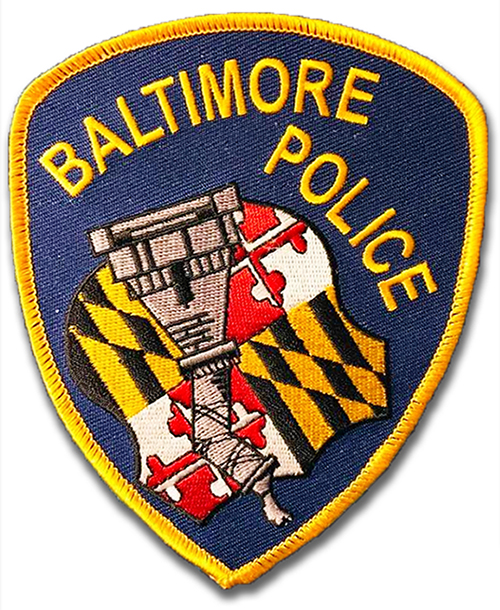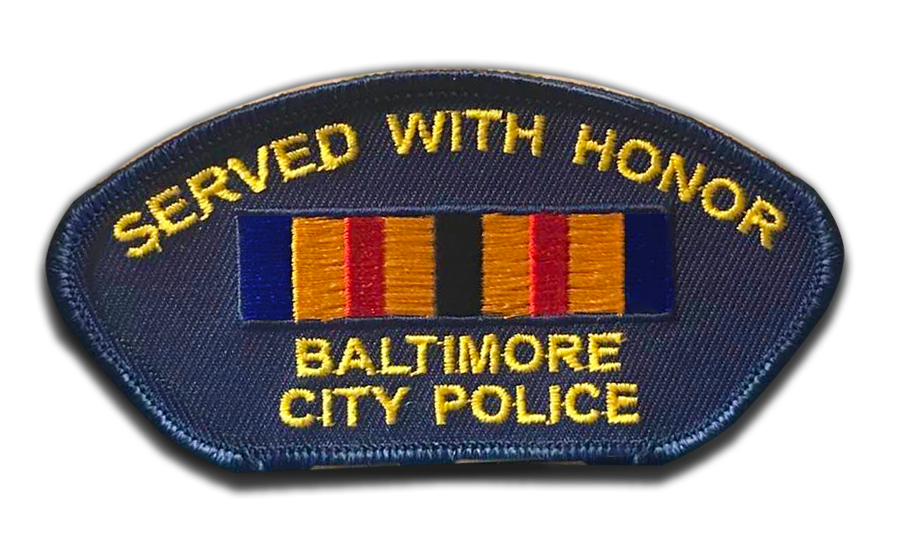The Child Abuse Unit in the Baltimore City Police Department was formed in June 1987. Colonel Pat Mullins oversaw the Community Services Division. Major Ron Collins ran the unit. Lt. George Kibler was the unit supervisor. For the initial makeup of the squads, 2 were assigned to physical complaints, while the other 2 squads did sexual complaints. That concept only lasted a few weeks because the cases poured in once Child Protective Services started a new reporting system that included police. A daily "Up" routine was developed. Each day, a different squad was "UP.". Within the squad of 4, the calls would be assigned to the last squad member who had taken a case. Besides Sgt. Jay Baker and John Greybill, Sgt. Celio Oliveras was the other sergeant. Det. Pete Baker was in his squad with Lynette Nevis, Gloria Melvin, and Shawn DeShields. Greybill had Larry Merifield, Jim Wiley, and Chris Steeg. Stein's squad was Cindy Woolford, Gene Fritzel, Harry Richmond, and one more that we can't put a name to. The final squad had Sgt. Jay Baker, Donna Cooper Askew, and others. As time went by, the squads were changed around, and people were retiring. New members arrived with Fred Roussey, Tyrone Francis, George Jones, Jennifer Boyle, Scott Jones, Joe Kleinota, and others. Those that worked in the unit found it to be the most rewarding position within the department for them, as they were actually able to see the results of their work. By putting a strong case together, they could honestly tell a child that they would be safe. The unit received unprecedented training at the time in methods of interviewing and interrogations, body language, child interviewing, crime scene processing, law, retrieving DNA, statement analysis, understanding the medical part of cases such as reading x-rays, SIDS, and understanding medial charts.

21 October 1985
Investigators of Sex Abuse Often Stymied
Baltimore Police Have Few Specialist and a large caseload. One Friday last November, two sisters told a ghastly tale to the workers of the sexual abuse clinic at Francis Scott Key Medical Center. A seven-year-old, brought in by an aunt who had noticed blood in her underwear, told Dr. Timothy F. Doran that her mother’s boyfriend had raped her. A physical examination provided gruesome confirmation of the assault. Alarmed, the pediatrician arranged to examine the child’s 11-year-old sister. She told him, “She has been subject to frequent [at least weekly] sexual intercourse by her mother’s boyfriend... for the last three years.” Dr. Dorian wrote in his report. He described a seven-year-old as “crying” and “fright” and the 11-year-old as “frightened” and “depressed.” The doctor believed them. The hospital social workers who interviewed the girls believed them. Their mother – at least when she was first interviewed by caseworkers – believe them. Herbert Bobby Thomas Junior, 27, was charged in 25 count indictments with rape, assault with intent to rape and several other offenses.
Five months later, Mr. Thomas walked out of Baltimore Circuit Court a free man. In a plea bargain, he had pleaded guilty to two third-degree sex offenses and received a suspended sentence and probation. Such stories are by no means unique in Baltimore. In every Maryland jurisdiction and around the nation, adults who commit the most serious crimes against children commonly escape meaningful punishment or treatment. And the victims often must return to the proximity of the abuser, with no guarantee that the abuse will stop. Sexual abuse prosecutors “have the most difficult jobs in criminal laws today, bar none, “Baltimore deputy state attorney Stuart Oh. Sims said. Children are often unable or unwilling to testify about painful and intimate experiences in the alien, adult setting of the courtroom. When the abuser is a relative, as in most cases, the victim may feel mixed loyalties or face pressure from a mother or sibling to recant. But problems in the criminal investigation and prosecution of sexual child abuse cases appear to be far more acute in Baltimore – which accounts for nearly 30% of the state’s attorneys reported sexual child abuse – then in suburbia and Maryland jurisdictions. One reason is money.
Besieged by far more sexual abuse cases than their counterparts in wealthier, suburban jurisdictions such as Howard Anne Arundel Counties, Baltimore police and prosecutors have far fewer and less sophisticated weapons with which to respond. Some of the problems that can result are reflected in the Thomas case. Neither the police nor the prosecutor, for instance, ever reviewed geological photographs of the seven-year-old victim, which could have been used as evidence. The hospital never sent photographs in response to the prosecutor's subpoena for “all records” of the case, and prosecutors never pursued the matter. No initial statement was taken from the girl’s mother, who subsequently denied that the abuse had occurred. Social workers who concealed the children and became intimately familiar with the case were never interviewed. Police work stopped the day it started after Thomas was arrested.
The Thomas case does not appear to be a fluke or freak and Baltimore’s criminal justice system. Among six 1984 sexual abuse cases picked at random from court files, for instance, were these three:
- a 20-year-old West Baltimore man was charged with raping a nine-year-old girl who had been visiting his house. The charges were dropped in December
- a 43-year-old West Baltimore man was charged with raping his seven-year-old daughter after forcing her to drink liquor. Six months later, all charges were dropped.
- Two girls, age 6 and age 8, who wandered away from East Baltimore elementary school, were taken to a burned-out house and sexually assaulted by 37-year-old Alan Lee Haskins. In a plea bargain, the sentence for Haskins, whose record included convictions for burglary, theft and fraud, was one year in jail.
Those three cases were among approximately 1300 reported of the sex crimes in Baltimore just last year. About 600 reported in Baltimore County in 1984. In Baltimore, a sexual offense unit staffed by just three detectives was responsible for all kinds of sexual assault, whether against adults or children. In Baltimore County, by contrast, five detectives were assigned exclusively to sexual child abuse. Another five detectives handled all other sexual assaults. Yet, detective Robert Benedetto of the County’s child abuse unit said that “we are overwhelmed.” That disproportion in staffing is obvious when the police department are compared with the department of social service, who staffing is allocated according to a statewide formula based on caseloads. Baltimore has five times the number of child protective service workers assigned to Baltimore County – 125 in the city, 25 in the County. Because of the small size of the sexual offense unit, the city police department is forced to leave the initial response investigation to regular patrol officers, whose training and experience with sexual abuse is minimal. In Anne Arundel Howard and Baltimore counties, the initial responses made by a trained child – abuse detective, usually accompanied by a social worker.
City police officials say that in theory, the initial response of a patrol officer to his sexual abuse report should be followed up by a train the detective from the sexual offense unit. In practice, few sexual child abuse cases get further investigation. Just 519 of the approximate 1300 sexual offense cases actually were investigated by the sex crimes detectives. In the rest, investigation stopped with the initial response by patrol officers. As a result, prosecutors often were handed cases that were unwinnable. Precise results are hard to measure, since the office of the Baltimore states attorney Kurt L. Smoke keeps no separate statistics on the outcome of sexual child abuse cases. Moreover, the prosecutors who handle the cases mentioned above declined to be interviewed, answering only general questions through Mr. Smoak’s deputy, Mr. Stu Sims.
But a review of Baltimore’s child abuse cases in court filed and interviews with police and prosecutors indicate the Baltimore prosecutors and of dropping or reducing charges in the most serious sex abuse cases more often than their counterparts in the suburbs. The outcome of the prosecution may determine not only whether an abuser goes to jail. It also can determine whether he gets the treatment that may prevent him from abusing more victims, experts say. “The criminal justice system can be used as a way of forcing abusers to get help,” said Beverly Jones, the state’s child protective chief in the Department of human resources. “Our expertise is that working with abusers strictly on a volunteer basis doesn’t work. They don’t take it seriously, they drop out.” Mr. Smoak openly acknowledged that the problem with investigation and prosecution of sexual abuse. He said police staffing is one of the major causes. “Often we are both the investigator and the attorney.” Mr. Smoak said, “in some instances, we can’t do both jobs as well as we would like.”
Mr. Smoak, who asked the city for an extra sex crimes prosecutor this year but didn’t get one, said sexual abuse cases deserve more investigation than they are getting. He also said he believes the investigations should be handled by specialist. “Sex offense cases – and child sexual offenses in particular – require a special degree of sensitivity and expertise,” he said. Police Commissioner Bishop Robinson defended his departments policies, but he admitted that they are dictated by budget problems. He said he is currently leaving 123 vacancies unfilled to stay within his budget. After the sun began inquiring about the caseload and the sexual offense unit, he added a fourth detective to the sex offense unit and announced plans to add two more as soon as officers can be transferred from other jobs. But he said he has no plans to take responsibility for the initial investigation in sexual child abuse cases away from to patrol officers.
“In an ideal world, of course, I’d prefer to send specialist,” he said, “when you have a high volume of calls, you can’t devote and in ordinate amount of resources to specialized units.” In addition, he said, he attempts to allocate officers to the problems the public appears most concerned about. At the moment, that doesn’t include sexual child abuse, he said. “I’ve made public appearances that may be every community organization in this city,” he said, “and not one time – or only a few times – has anyone raised this issue of child sexual abuse as a concern. Their major concern seemed to be the violence in the streets and drug trafficking in the streets.” Interviews with experienced child abuse detective suggests that successful investigations of sexual child abuse require specialization and plenty of time.
“We often take the time to sit with the child for a half hour before we start asking questions,” said detective Benedetto, a six-year veteran of the Baltimore County Child abuse unit. “You try to get the child talking to you as a friend – not as an authority figure.” “We have the time to follow through with a full investigation,” said detective Lorraine Heseman, who has investigated child abuse cases in Anne Arundel County for seven years, “patrol has to handle umpteen calls a day, and they just don’t have the time.” The detectives said they and early, detailed interview with the victim’s mother is frequently critical to prosecution, because it puts her on the record as saying she believes the abuse occurred. A key factor in the dropping of rape charges in three of the cases mentioned at the beginning of this article was the ultimate decision of the victim’s mother to oppose prosecution and to urge their children to recant. In the Thompson case, for instance, the mother of two victims ultimately pressured them to recant and even signed an affidavit for Thomas’s lawyer stating that the abuse could not have occurred. Prosecutors accepted a plea bargain partially because they feared that the girls would not testify against their mother’s wishes.
Such resistance to prosecution is far from unusual. “Many of our mothers [of victims] have been sexually abused themselves, “said Shirley F. Moorehead, a supervisor in the sexual abuse section of the city’s social services department. “No one believes them. No one did anything about it. “Now their child says that she has been abused. It brings about such painful feelings for them that they want to deny it. To stop the pain. The way for them to do that is to get the child to say, “no one touched me,” Child abuse detectives also said that it takes experience with dozens of cases to master the art of coaxing a confession from an alleged abuser. Particularly in intrafamily cases. A uniformed police officer with little experience with such cases, they say, stands a far smaller chance. City police Commissioner Robertson said that only with a massive budget increase – in the face of a declining overall crime rate – could the city match the county’s child abuse units, and that appears unlikely. “We all to be willing to pay whatever it takes to deal with this problem,” said Sandra J. Skolnik, executive director of the Maryland committee for children. Without treatment, she noted, abused children become abusers themselves and the vicious cycle goes on. “You end up replicating all of that horror that you suffered yourself.” Ms. Skolnik said, “this is the lifelong imprinting of human beings by other human beings. Children are being crippled for life.”






















